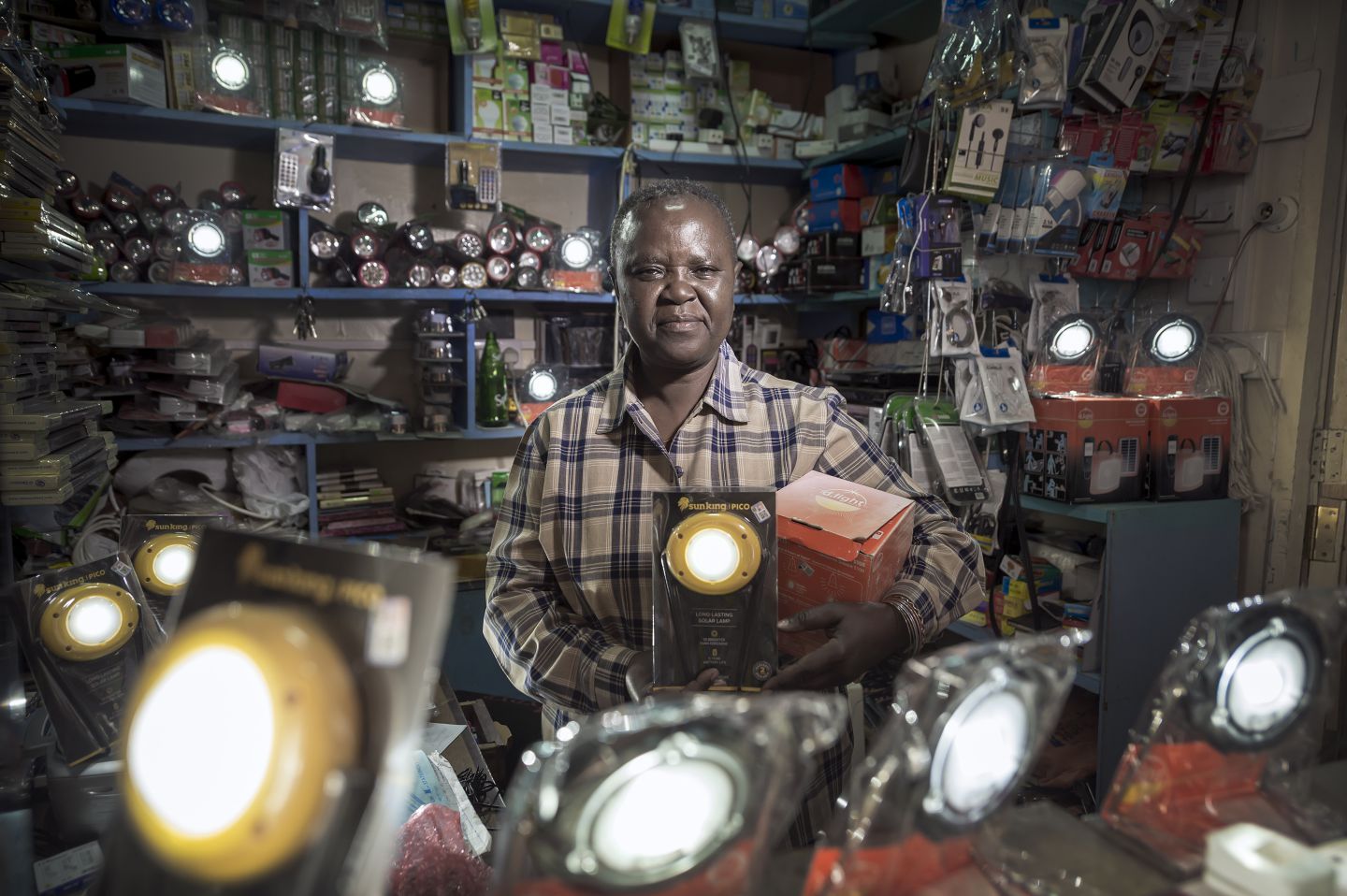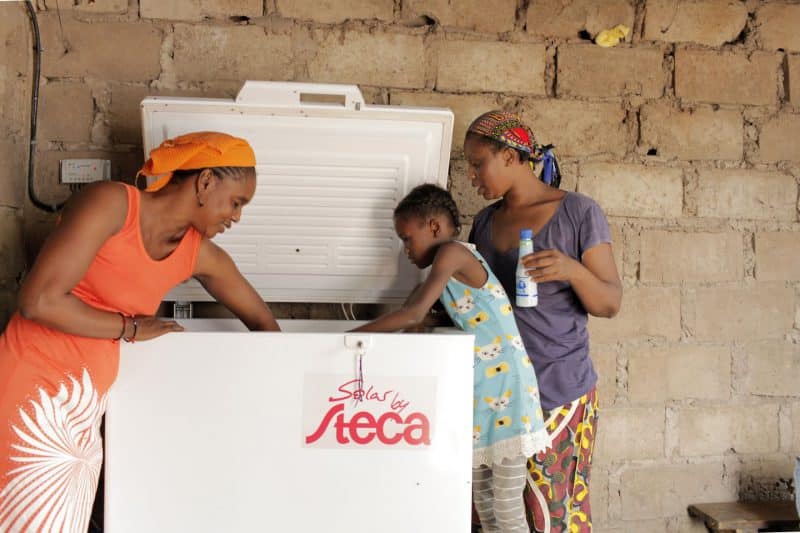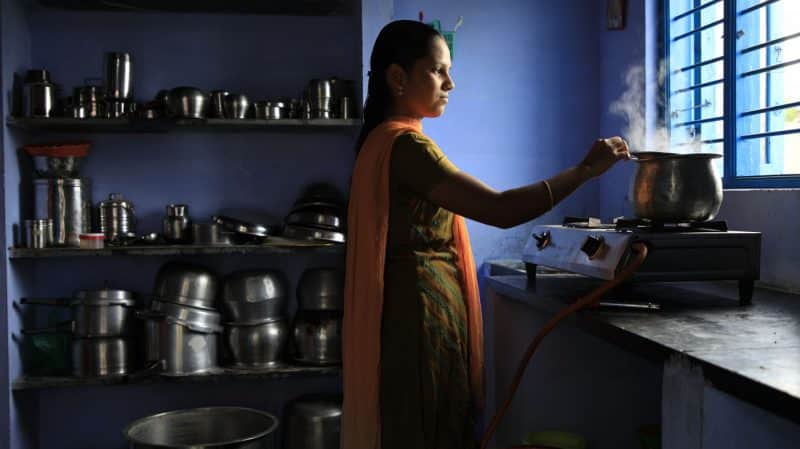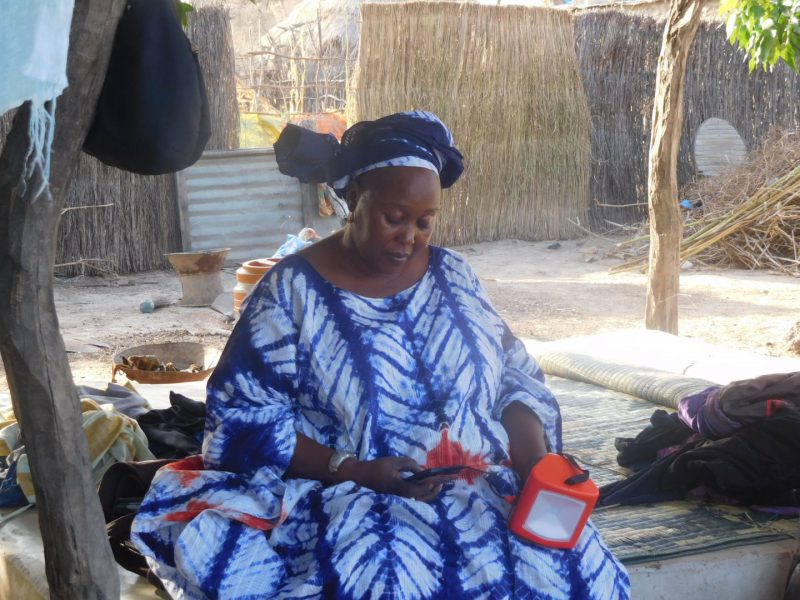The coronavirus crisis is putting a tremendous strain on the global economy and public health systems, as well as on the energy supply and access systems that support them. It highlights and magnifies inequalities and the multiple forms of discrimination that women and girls face, including in the energy sector. The pandemic is moving beyond a global health crisis, into a labor-market, social and economic crisis, posing a serious threat to women’s employment and livelihoods. This is especially so in the small business and informal sectors, that already have energy access challenges. Energy access is as important as ever for households and businesses; particularly health infrastructure and women’s role in the care economy are stressed. Furthermore, combined with COVID-19, traditional cooking smoke may pose an additional risk for women.
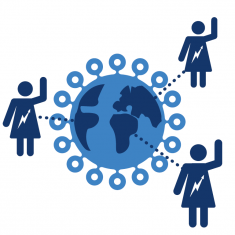 Women are at the frontlines of the coronavirus pandemic.
Women are at the frontlines of the coronavirus pandemic.
And they need modern and affordable energy to keep up this fight.
ENERGIA and partners have gathered and analyzed information from the field and from available sources, on the impacts of COVID-19 on women and energy access. Based on the findings, we identified a number of critical areas that need global and national support in the international fight against the pandemic. Below a summary of the recommendations for policy and practice. The full document, Gender and energy at center stage at in COVID-19 battle: Powering a more gender-equal recovery, is available here.
Ensuring energy access and appliances
Due to heightened care needs of older and sick people, school closures, home schooling and cooking more meals at home because of the corona crisis, women’s share in unpaid care and domestic work is increasing. Gathering food and fuel is more stressful, risky and time-consuming, hygienic practices intensified. At the same time, women still have to generate an income through paid work. Energy access and electrical appliances are essential to save time and labor linked to the increasing demands of the pandemic and to build future resiliency.
Support is required to improve the availability and affordability of electrical appliances. Ways to do this include promotions, cashless/no-contact mobile payment options, flexible payments, targeted subsidies and appliance rentals.
Female energy sector employees
About 32% of renewable energy workers are women and women and men have different hygiene and safety protocol needs which should be addressed. The pandemic and economic recovery could provide energy companies and organizations with the chance to raise productivity by introducing more family-friendly work policies, promoting gender equality and women’s empowerment in the workplace, and protecting the most vulnerable groups.
Utilities, renewable energy companies and energy agencies need to develop different support policies and practices for remote working and operations, for women and men.
Women energy entrepreneurs
Female entrepreneurs both use energy in their businesses, and sell energy appliances and services. They are critical to fast-tracking the last-mile distribution of renewable energy technologies, due to their unique ability to connect with their customers, increase awareness in their communities and deliver products and services through untapped social networks. With COVID-19, the entrepreneurs and their customers cannot go to markets, and often cannot access raw materials or products. As a consequence, it may be difficult to repay business loans, profits are lower and may be diverted to family emergencies rather than be re-invested, and businesses are closing.
Social protection packages that provide financial support can help salvage women’s energy enterprises directly impacted. These packages should be easily accessible to the women entrepreneurs, who often work in the informal sector and are therefore difficult to reach.
Mitigate gender-based vulnerabilities that are intensified by COVID-19
Clean cooking solutions
Household air pollution from traditional biomass cooking in Africa and South Asia increases one’s susceptibility to respiratory infections and could lead to higher mortality rates for women with COVID-19. Furthermore, according to a survey conducted by the Clean Cooking Alliance, the current economic slowdown and lower income levels could cause a return to firewood and other polluting biomass fuels, creating health and environmental impacts. The Alliance has therefore suggested that:
“Governments and all other actors (private sector and development partners) should make clean cooking part of their pandemic emergency response plans and provide immediate support to vulnerable consumers.”
Unaffordable electricity costs
Women are disproportionately affected by economic shutdowns because they are more likely to be informal workers and entrepreneurs. Informal sector and low-income, female-headed households and women living rural and remote areas, are among the most vulnerable groups affected by social distancing and unemployment – women are earning less, saving less, and holding more insecure jobs. This will have an impact on their capacity to pay their electricity bills, leaving them at risk of disconnection during the crisis and further impacting their livelihoods, income and family welfare.
Government relief packages should include flexible payment plans, waivers to mitigate service disruption and cash transfers targeted at vulnerable consumers in the energy sector.
Gender-Based Violence
Lock-down measures confine people to spending more time at home. With more people spending more time in a limited space, tensions tend to increase, exacerbated even further by security, health and money worries. According to a UN Women’s policy brief, gender-based violence is increasing exponentially. Procuring cooking fuels, especially in humanitarian and fragile settings, is an additional risk for women to be exposed to gender-based violence.
Women need to know what they can do to protect themselves, what mitigation strategies they can adopt and what measures and benefits governments put in place. To facilitate this knowledge and to empower women, access to communication tools such as solar radios and mobile phone chargers needs to be ensured.
Powering health infrastructure
Only 28% of healthcare facilities in Sub-Saharan Africa benefit from reliable electricity. Other health services, for example sexual and reproductive services, are affected by overwhelmed or closed health services. Women in their reproductive years and children are particularly vulnerable: pregnant women may find it difficult to access ante- and post-natal care or get to functioning health posts for delivery; vaccine coverage rates are likely to fall acutely; and children with acute non-COVID illnesses may be kept at home instead of taken to health centers.
Electricity access for healthcare facilities should speed up. Mini-grids and off-grid systems such as modular solar with battery energy storage systems can be deployed quickly to underserved and rural health clinics.
The ‘digital divide’ in communications
In times of the coronavirus pandemic, access to internet and digital technologies are becoming prerequisites not only for attaining decent employment but also for cultural and political engagement. Lack of electricity and internet access, and (digital) illiteracy can exclude women. Access to solar radios and mobile phone chargers to be aware about gender-based violence, to stay informed about coronavirus mitigation strategies and to be able to access distance learning is critical.
Electric power, both grid and decentralized, need to be ensured and expanded for internet services, radios, mobile phones and TVs—women’s main communication channels—to help both women and men live with and recover from the pandemic.
ENERGIA and partners are developing a COVID-19 response and recovery strategy that includes sharing perspectives and experiences from the field, to mobilize actions and funding to mitigate impacts, innovate responses, and bring a gender lens to the coronavirus response.
Post-COVID-19 economic recovery plans must include equitable access to and control over sustainable energy services for women and men as an essential right to development.
Read more: Gender and energy at center stage at in COVID-19 battle: Powering a more gender-equal recovery


